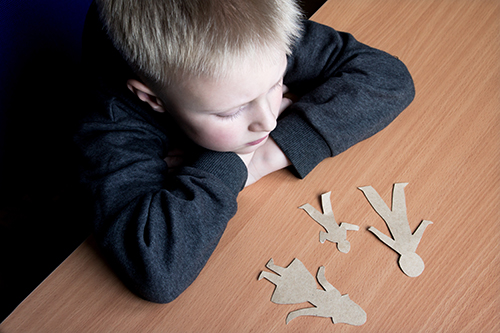
Unless a parent has a history of neglect, abuse, domestic violence, or other serious actions that would require the court to protect the child, the State of Utah has specific minimum schedules and rules for visitation that the judge must abide by and order when parents are unable to agree on a different visitation schedule.

Even though the parents or the judge originally believed that a custody order was appropriate for the children of the divorced couple, a change of circumstances may necessitate some changes to the custody agreement in place.

Interaction with grandparents is an important aspect of a child's life. Unfortunately, regular visits with grandparents can be uprooted when a couple goes through a divorce. Yet, what happens if a child wants to continue a close relationship with a grandparent during and after a divorce? What if the maternal or paternal grandparents want to assert visitation rights with the child? These issues are covered in the area of law known as grandparents rights.

Child custody is one of the most painful, complex, and expensive forms of litigation. Obviously it is painful as it involves children that are the most important factor. More than property, money, or other monetary asset, the children are the ones who matter most.

Living in different states can make co-parenting arrangements and visitation schedules difficult for unmarried or divorced parents.

Dealing with child custody issues is never an easy process. It gets even harder when a parent's living situation changes. Sometimes a parent needs to move to a different area for a job opportunity, or for familial obligations. When this happens, the relocation can cause problems for the current child custody order.

Most Utah judges believe that it is in the best interest of children to have a relationship where their parents share their custody. Judges, however, can have their opinions swayed in individual cases if they believe that the best interest of the child is met with only one parent getting custody.

The laws regarding child visitation dictate how a non-custodial parent interacts with a child. Child visitation rights are a matter of state law. Orders for support are handled by the local family court that hears the divorce. The basic point of visitation rights is to allow the child to spend a specific amount of time with a parent he or she does not live with.

Child custody issues are never easy. In some cases, a custody order is modifiable due to changed circumstances. When this need arises, many parents wonder how the child's wishes factor into the request. After all, the main focus is on the well-being of the child. See how much leeway the court will give to the child's wishes.

Visitation rights are a common topic in family law. A court may award these rights to the non-custodial parent during a divorce. The purpose of issuing this order is to allow the child to maintain a relationship with the parent. The child visitation schedule will list the specific terms of the agreement. Yet, there are certain aspects of these orders you need to understand to be fully informed.







 The laws regarding child visitation dictate how a non-custodial parent interacts with a child. Child visitation rights are a matter of state law. Orders for support are handled by the local family court that hears the divorce. The basic point of visitation rights is to allow the child to spend a specific amount of time with a parent he or she does not live with.
The laws regarding child visitation dictate how a non-custodial parent interacts with a child. Child visitation rights are a matter of state law. Orders for support are handled by the local family court that hears the divorce. The basic point of visitation rights is to allow the child to spend a specific amount of time with a parent he or she does not live with.

